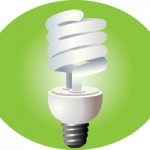 Making your savings work for you is a cornerstone of your overall financial plan. When making the decision to save money, it is also good to have specific goals in mind. However, an important part of saving is almost always overlooked is where to keep the money so that it works for you. There are many different types of accounts that you can use to gain interest on your savings account and make your money work for you.
Making your savings work for you is a cornerstone of your overall financial plan. When making the decision to save money, it is also good to have specific goals in mind. However, an important part of saving is almost always overlooked is where to keep the money so that it works for you. There are many different types of accounts that you can use to gain interest on your savings account and make your money work for you.
These days it is difficult to achieve even a 1% return on the money you keep in a bank. But the trade-off here is that your money in the bank is FDIC insured. Here is some banking advice to consider when thinking about what to do with your money:
Online Savings Accounts. These are readily available and offer among the best interest rates out there today. They are typically offered by banks that do not have branches so you must be comfortable doing your banking remotely; either fully online or with the assistance of a telephone customer service representative.
Savings accounts that are available at your local bank. Most banks have different types of savings accounts and rates that vary depending upon the amount that is deposited. The annual percentage rates are usually low, with interest being paid quarterly. If you are looking for a long-term, higher interest yielding investment, you might want to skip the savings account in favor of a certificate of deposit.
Certificates of deposits, or CDs, are a type of investment tool that requires the investment to be held for a specific time frame. If you invest in a certificate of deposit, your money will be on hold until the time expires. You will be able to withdraw the money early, but a penalty will apply. Interest will be credited according to the agreement, but all interest will be lost if the withdrawal is made before the CD matures. Placing your money in a CD is not a good idea if you wish to have unlimited access to the money, or need it before the CD matures.
Savings bonds are a type of bond that is issued by the government. They are backed 100% and typically take 10-30 years to mature with interest accumulating every month. However, they can be cashed in at any time with no penalty; you just will not earn the extra interest. Savings bonds can be purchased online as well as through your bank.
Money market accounts that are held at your local bank. Money market accounts usually require higher balances and the access to the money is limited, although not as limited as a CD. Most money market accounts allow only a limited number of withdrawals per period, usually 6 per month. The plus side of a money market account is that it tends to yield higher interest due to the higher amounts required for deposit.
There are many different types of savings methods available. There is no wrong way to invest your money. A typical low interest yielding savings account is good if you want unlimited access to your money. If you are interested in investing long term only, you might consider a savings bond or a CD. Whichever route you decide to go, do your research first so you know exactly what to expect. You can always change your mind at a later date, although you may pay a penalty if you invest in a CD.
Tags: Banking Advice, online savings, saving advice, saving money
This entry was posted
on Tuesday, September 7th, 2010 at 7:03 am and is filed under Savings.
You can follow any responses to this entry through the RSS 2.0 feed.
You can leave a response, or trackback from your own site.
 Making your savings work for you is a cornerstone of your overall financial plan. When making the decision to save money, it is also good to have specific goals in mind. However, an important part of saving is almost always overlooked is where to keep the money so that it works for you. There are many different types of accounts that you can use to gain interest on your savings account and make your money work for you.
Making your savings work for you is a cornerstone of your overall financial plan. When making the decision to save money, it is also good to have specific goals in mind. However, an important part of saving is almost always overlooked is where to keep the money so that it works for you. There are many different types of accounts that you can use to gain interest on your savings account and make your money work for you.











